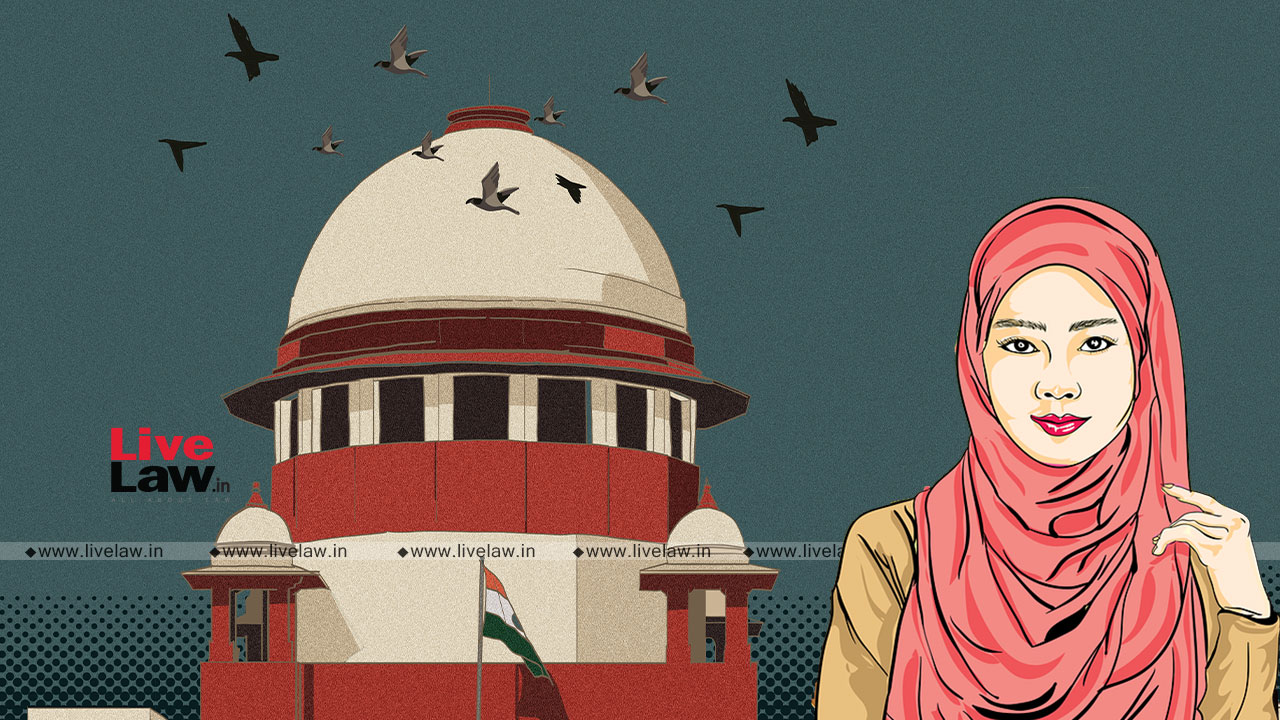- Home
- /
- Top Stories
- /
- Can Muslim Women Claim Equality In...
Can Muslim Women Claim Equality In Succession? Can Will Be Executed For Entire Property As Per Mohammedan Law? Supreme Court To Decide
Gyanvi Khanna
18 May 2024 8:44 AM GMT
The Supreme Court has decided to determine, inter-alia, whether Muslim women have the right to claim equality in succession in light of Article 14 (Right to equality) and 15 (Prohibition of discrimination on grounds of religion, race, caste, sex or place of birth) of the Indian constitution. The question arose before the bench of justices C.T Ravikumar and Rajesh Bindal, who...
The Supreme Court has decided to determine, inter-alia, whether Muslim women have the right to claim equality in succession in light of Article 14 (Right to equality) and 15 (Prohibition of discrimination on grounds of religion, race, caste, sex or place of birth) of the Indian constitution.
The question arose before the bench of justices C.T Ravikumar and Rajesh Bindal, who were deciding a civil appeal.
The factual background of the matter was such that the respondents have filed a suit claiming that a will executed, by late Hazi, left the properties with his three sons, leaving out his fourth son. The Trial Court had decreed the suit. However, the same was modified by the lower appellate Court directing that Hazi could execute Will only to the extent of 1/3rd of his estate. Thus, only the remaining 2/3rd estate were to be divided amongst the legal heirs equally.
Notably, when the matter reached the High Court, the aforesaid order was set aside, and the Trial Court's order was restored. Thus, the present appeal.
During the hearing, it was argued that the testator is entitled to bequeath one-third of their estate to a third party, while the remaining two-thirds must be distributed equally among the legal heirs. However, this one-third limitation can be waived if the legal heirs give their consent.
The judgments cited also included one Karnataka High Court's decision in Narunnisa v. Shek Abdul Hamid., AIR 1987 KANT 222. Therein, a reference was made to a precedent where the ratio was that if a Muslim father leaves behind a son and a daughter, and the daughter does not agree to the father's will giving 3/4th of the property to the son and 1/4th to her, she will be entitled to claim 1/3rd of the property as her share of inheritance and not 50%.
In view of these present facts and circumstances, the Court framed the above question and the following questions:
Whether Muslim women have right to claim equality in succession in view of the mandate of Constitution of India under Articles 14 and 15 thereof in the light of Article 44.
Whether a testator, who is governed by Mohammedan Law, is entitled to execute a Will of his entire estate left, according to his wish?
Whether a testator, who is governed by Mohammedan Law, can execute a Will to the extent of 1/3rd of the estate left by him in favour of any or more of his legal heirs without the consent of other legal heirs?.
The Court also appointed Senior Advocate V. Giri as an Amicus Curiae in the case and also asked Advocate-on-Record Amit Krishnan to assist him in the matter.
“The Registry is directed to supply the complete set of paper book of these appeals to Mr. Amit Krishnan, AOR, assisting the learned Amicus Curiae and the Office of the learned Attorney General for India along with a copy of this order, after incorporating the corrections in the paper book, as sought for by the appellant.,” the Court recorded before parting and posted the matter to July, 25.
Related developments - Supreme Court Agrees To Consider Plea Seeking Declaration That Shariat Law Won't Apply To Non-Believer Muslim
Can Divorced Muslim Woman File For Maintenance Under Section 125 CrPC? Supreme Court To Consider
Case : TARSEM VS. DHARMA., DIARY NO. - 21450/2016
Citation : 2024 LiveLaw (SC) 396


